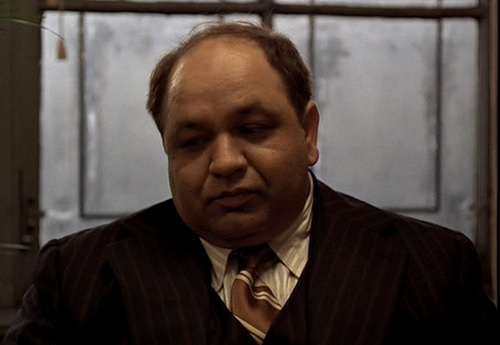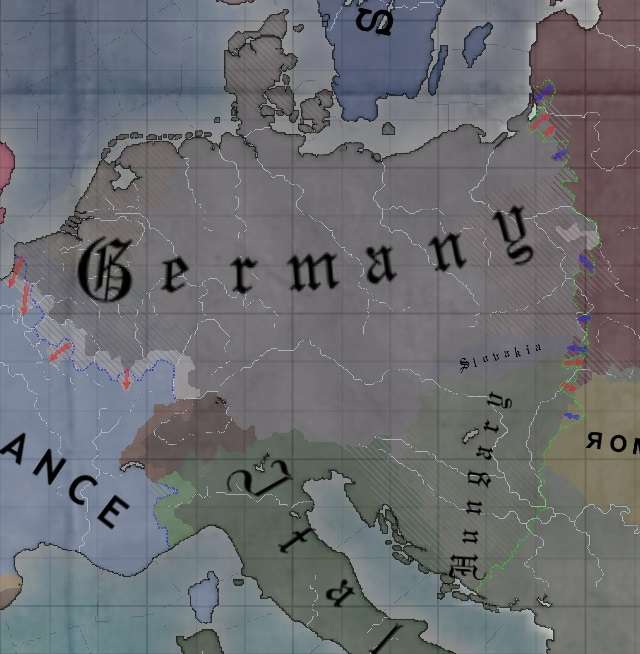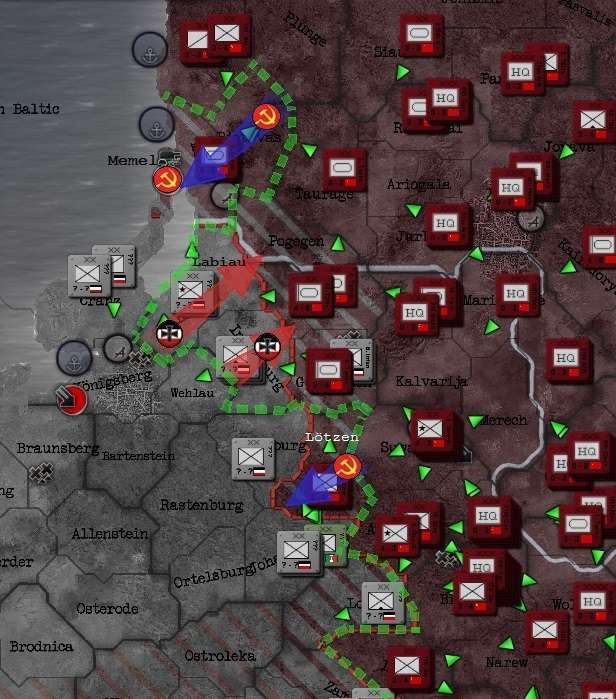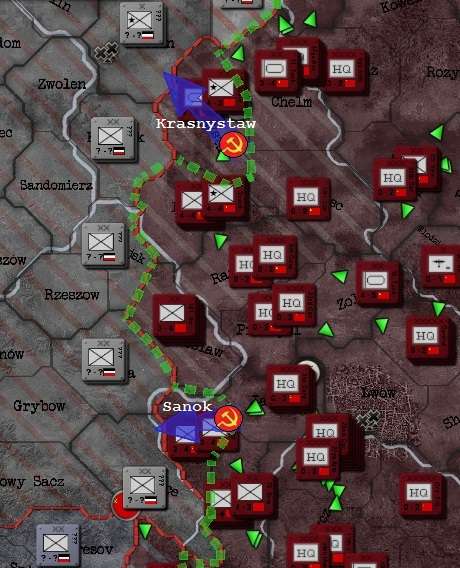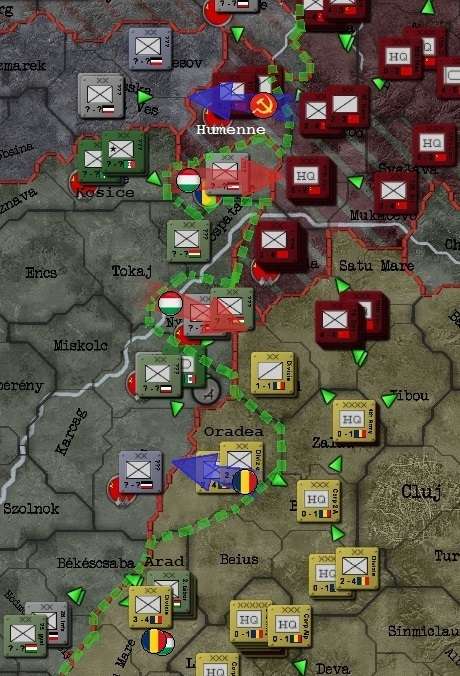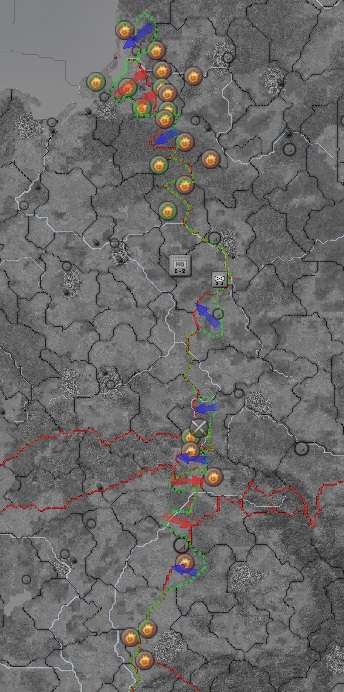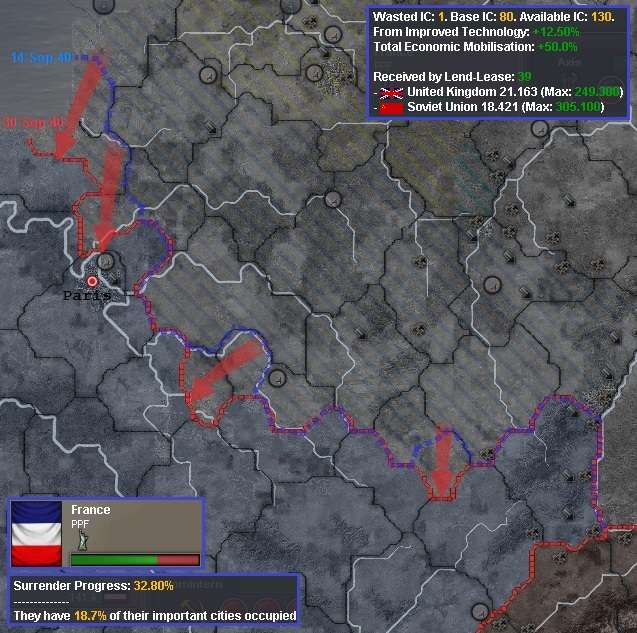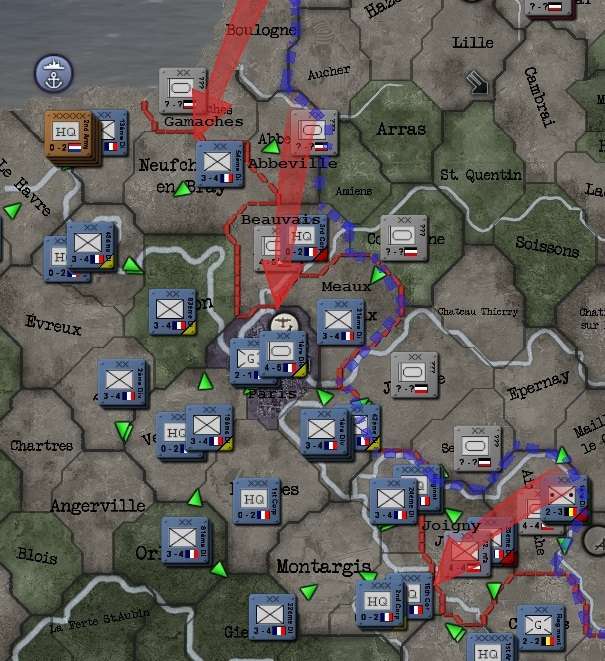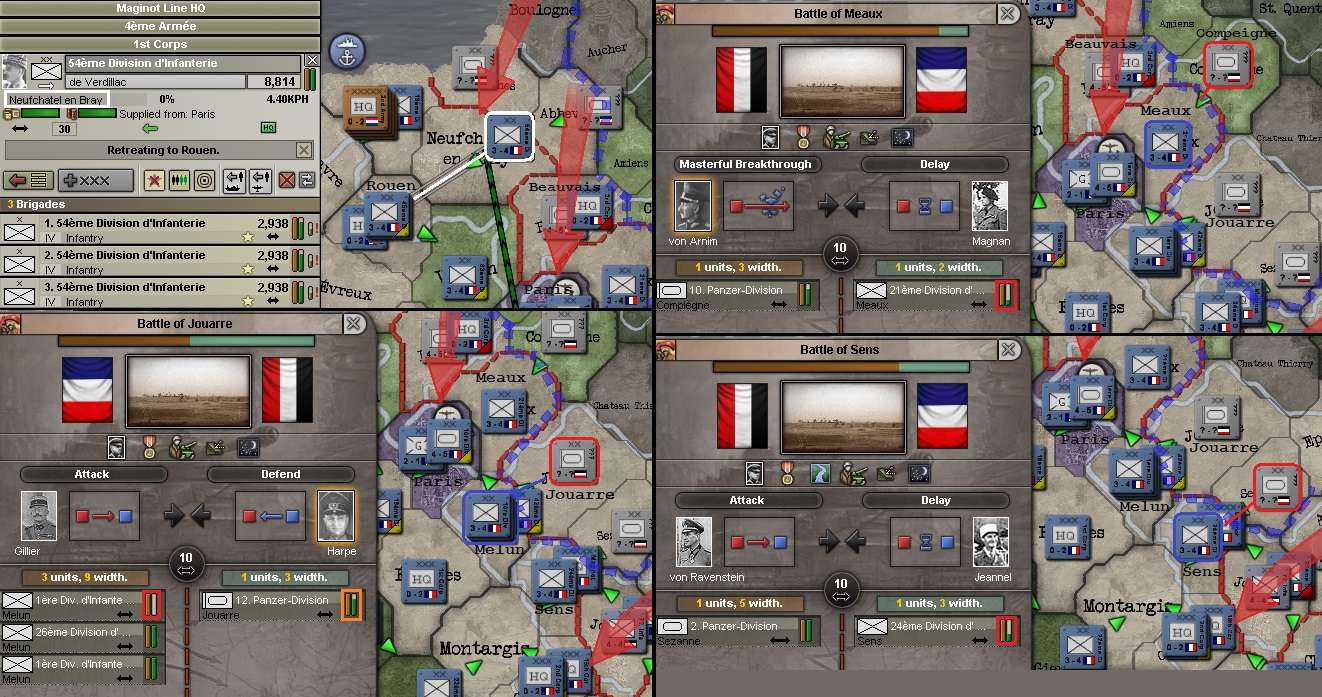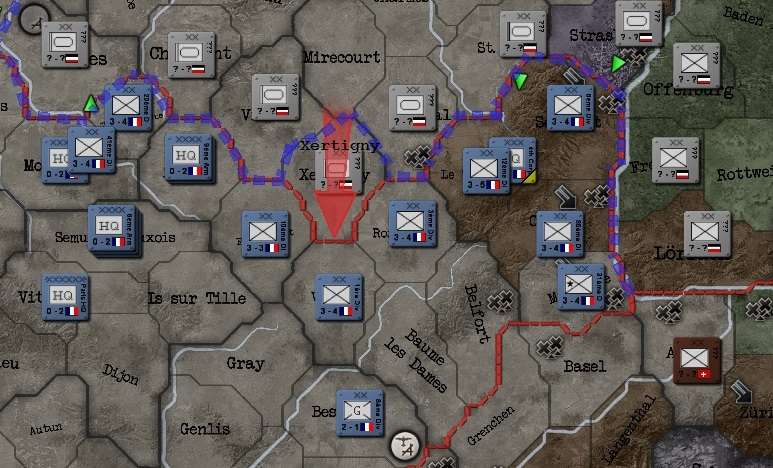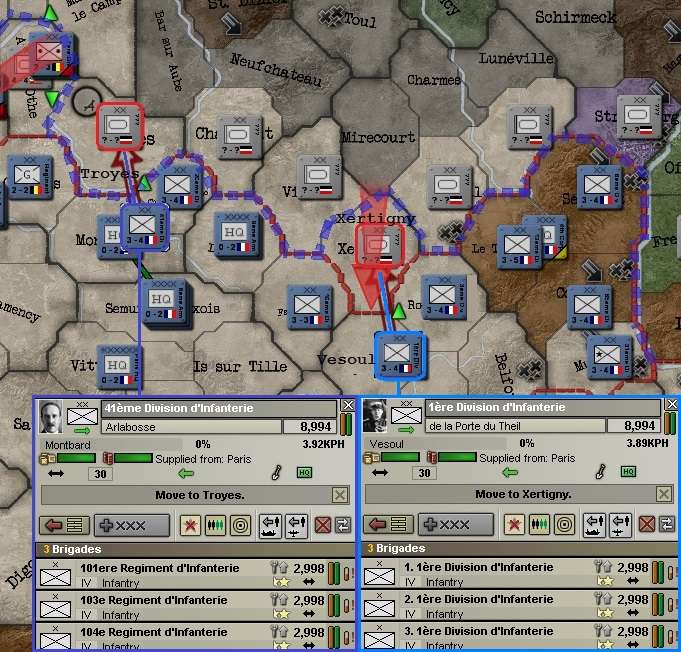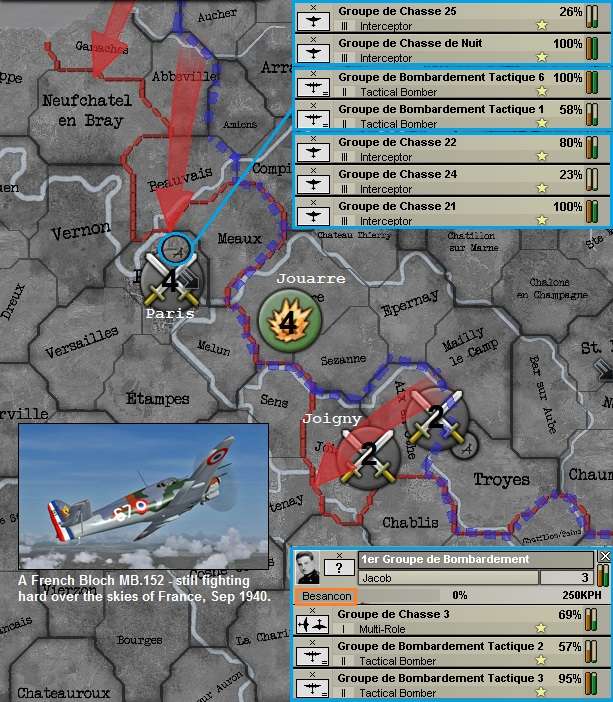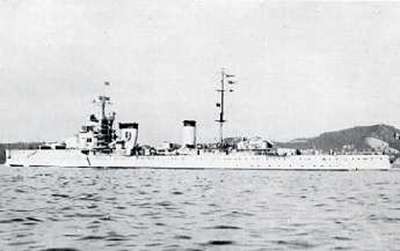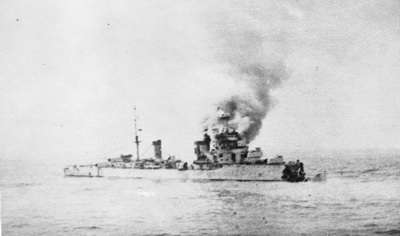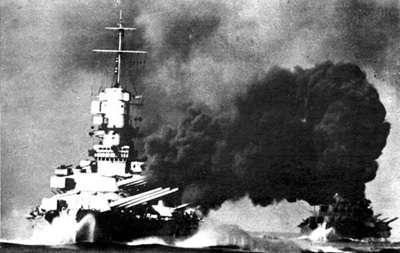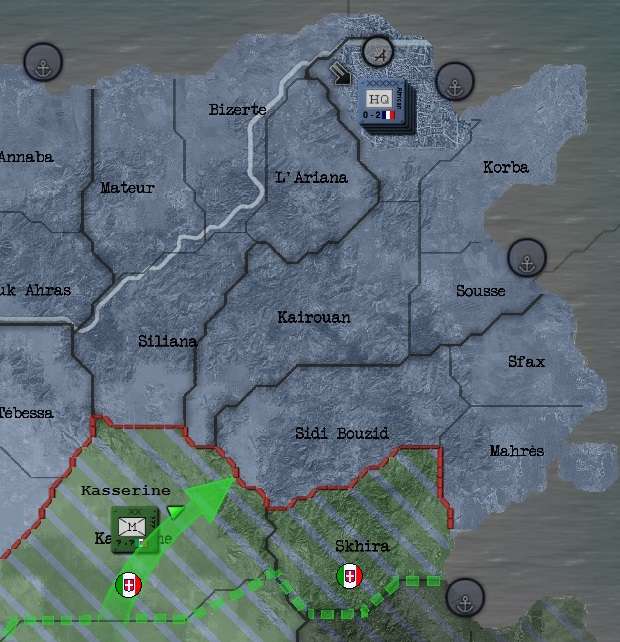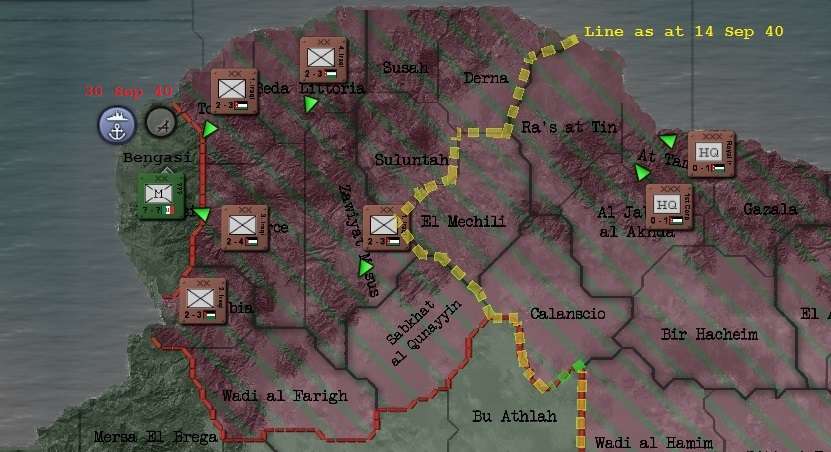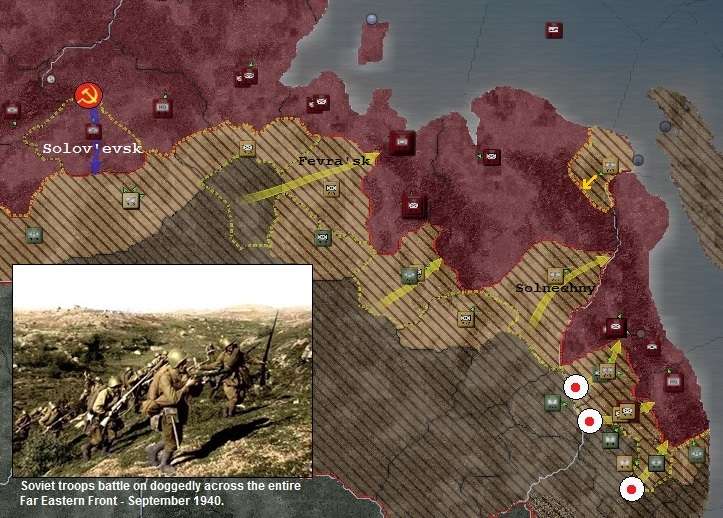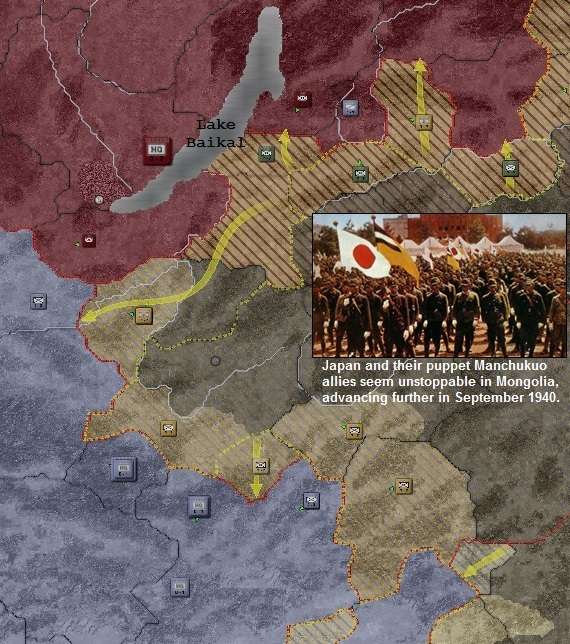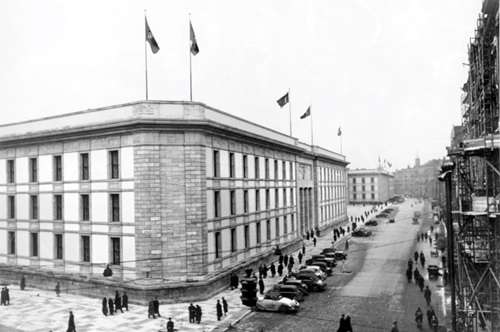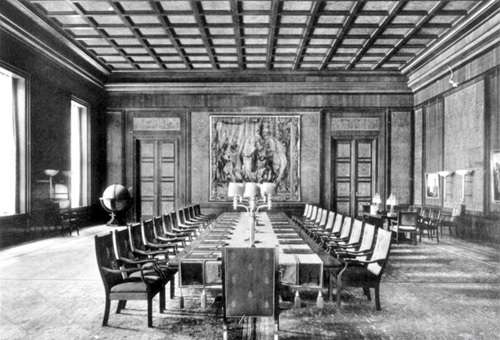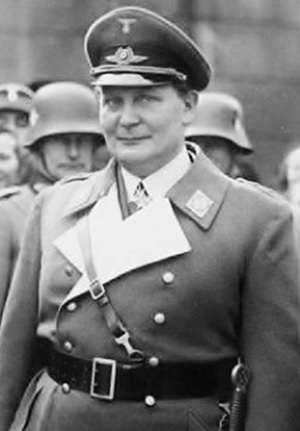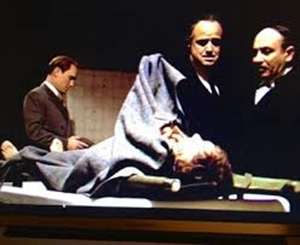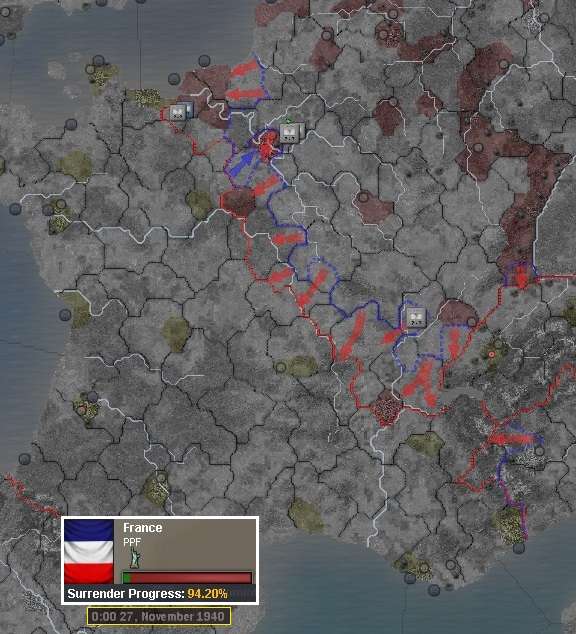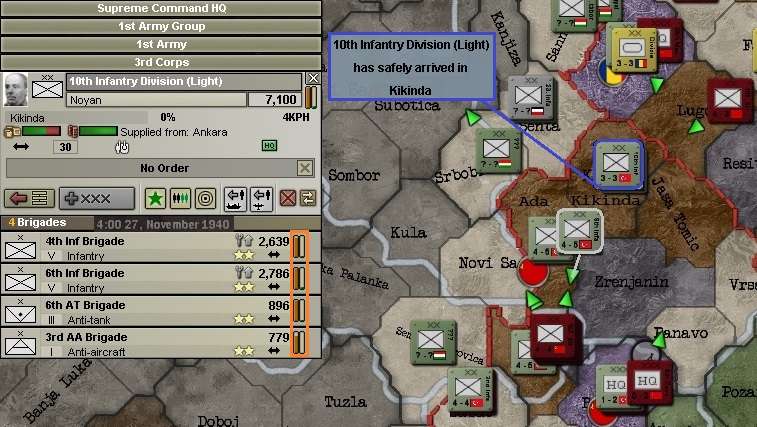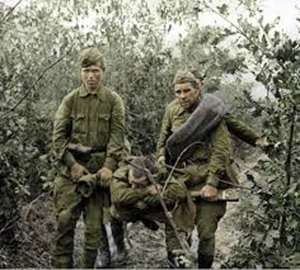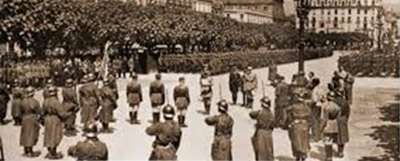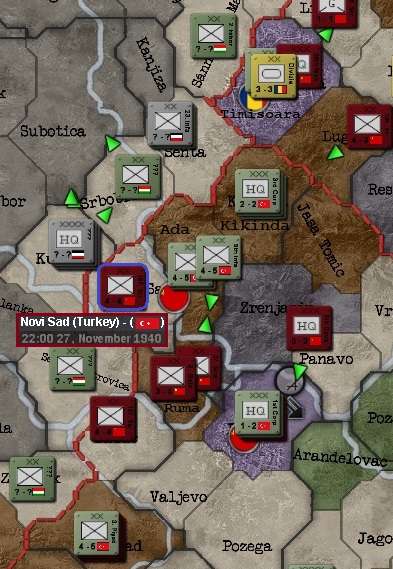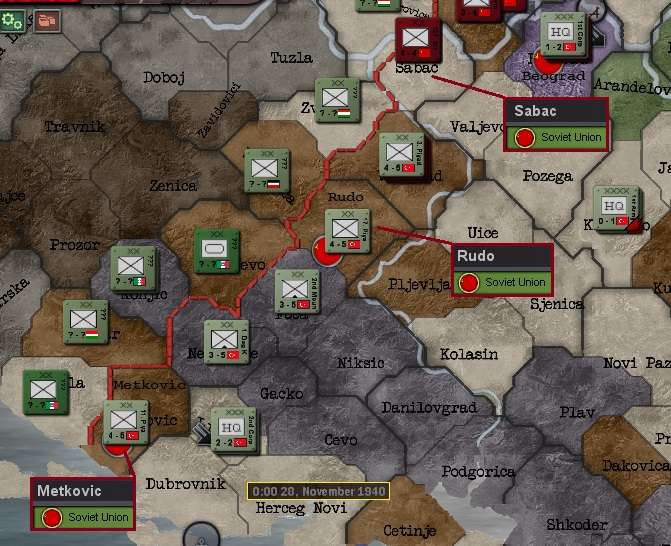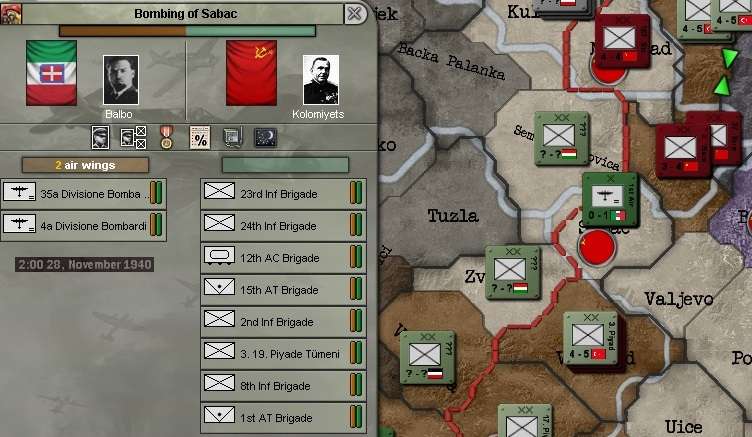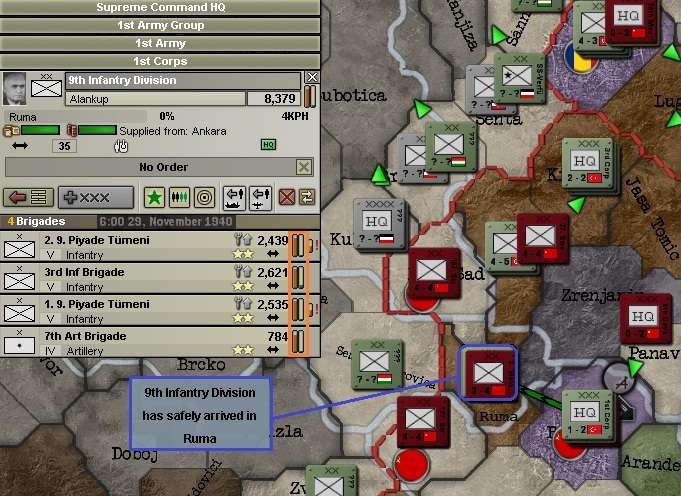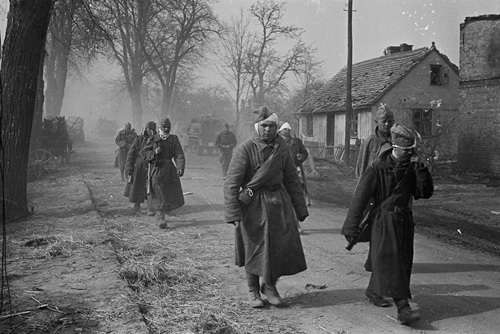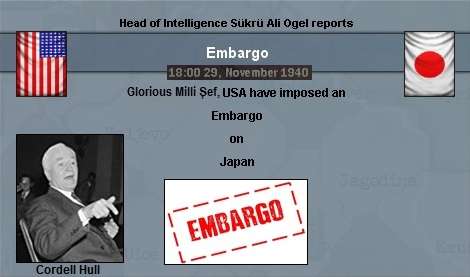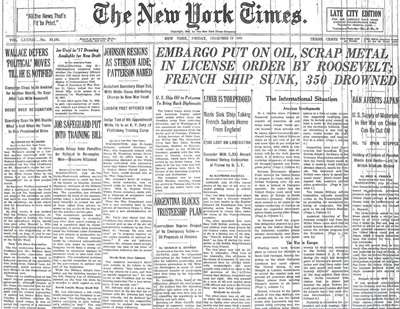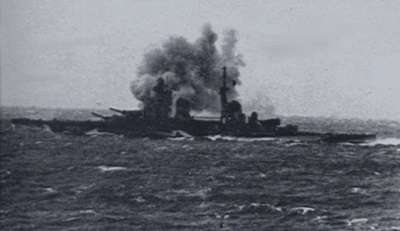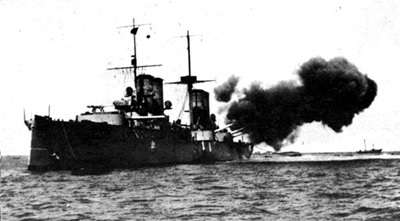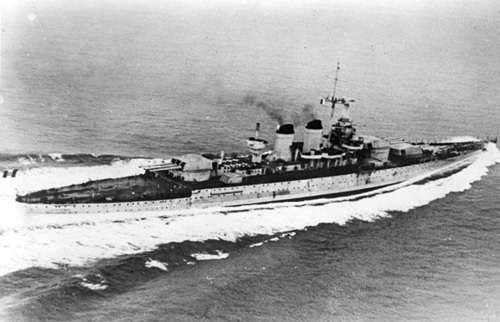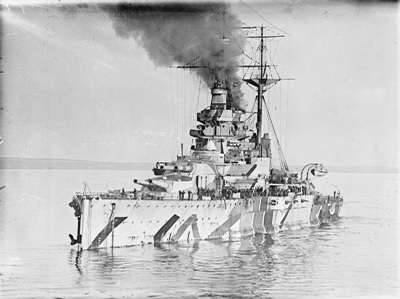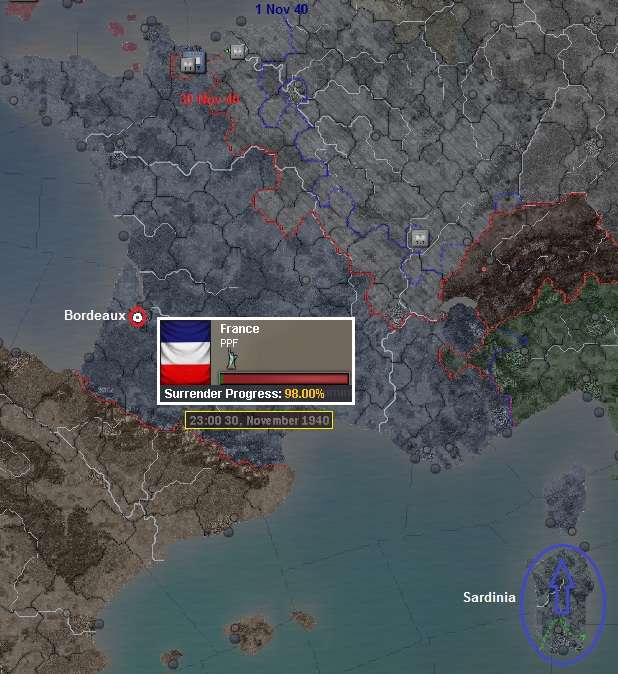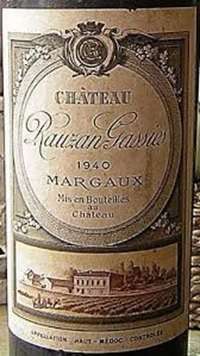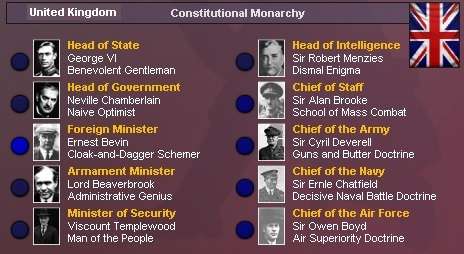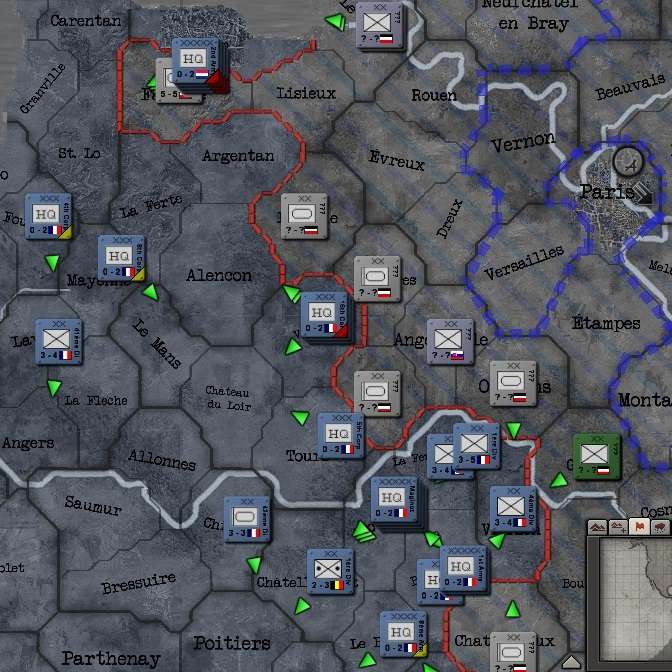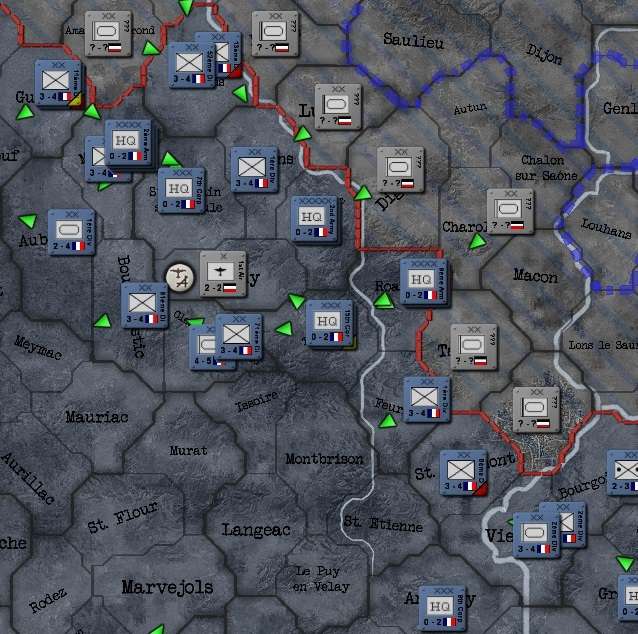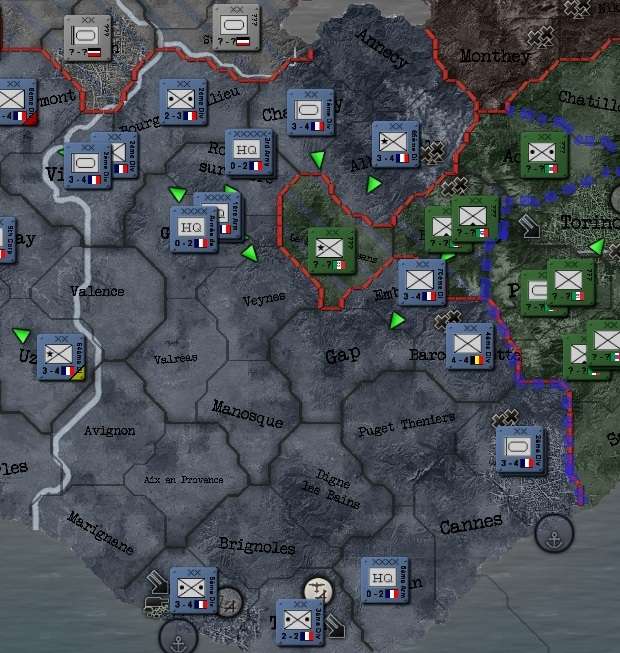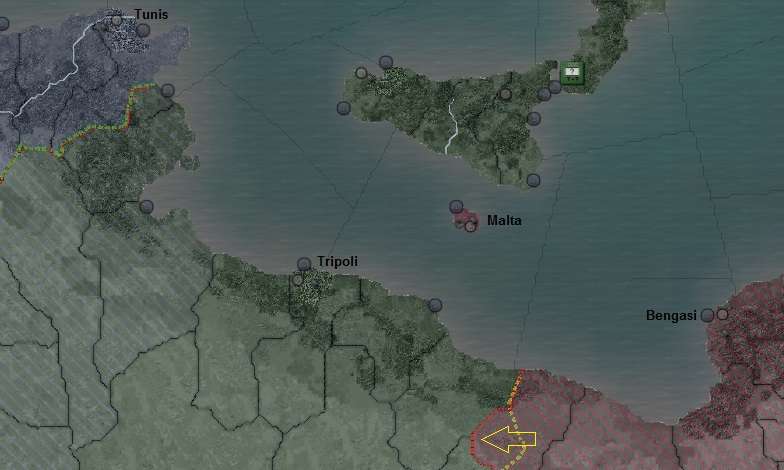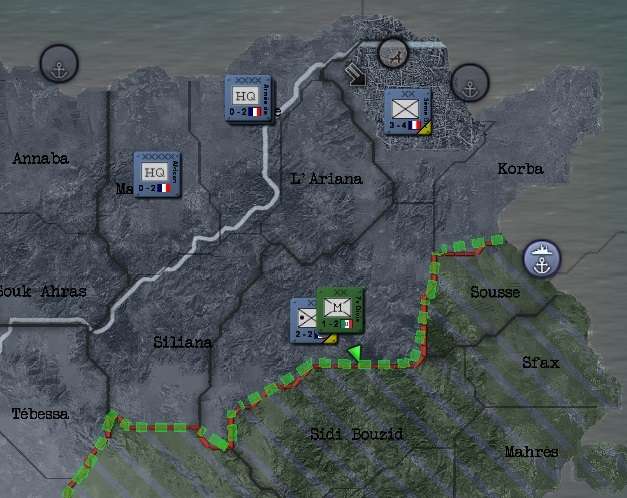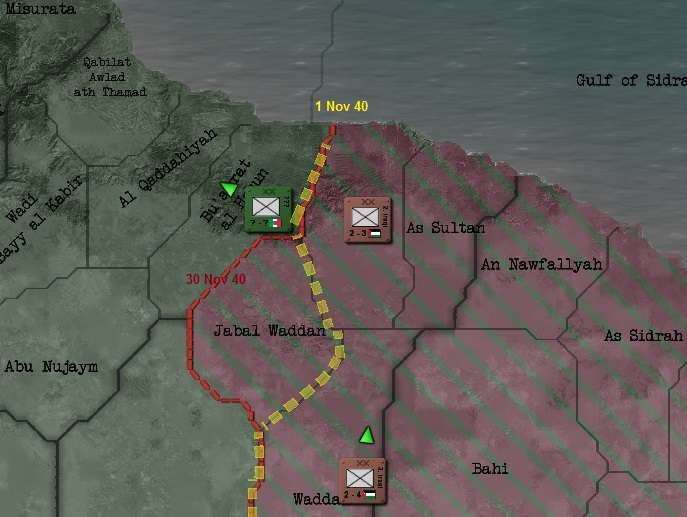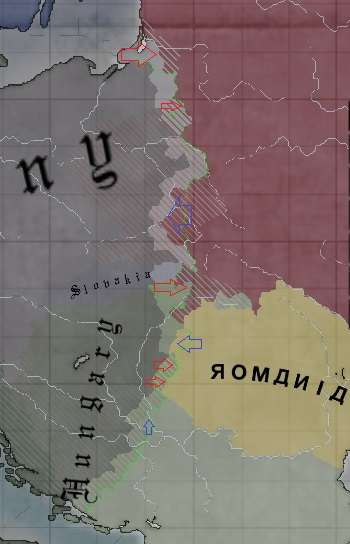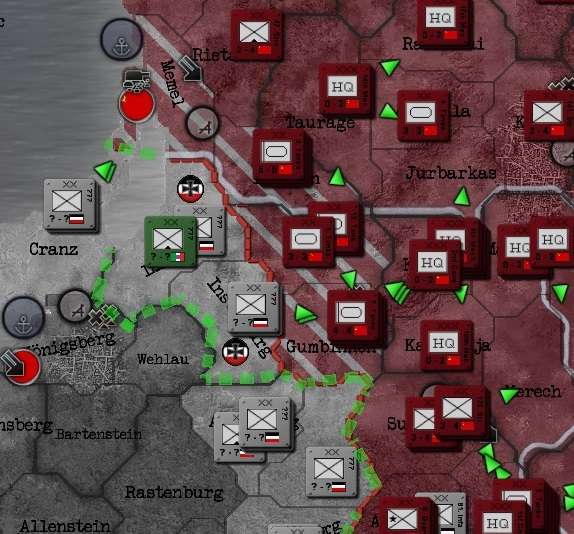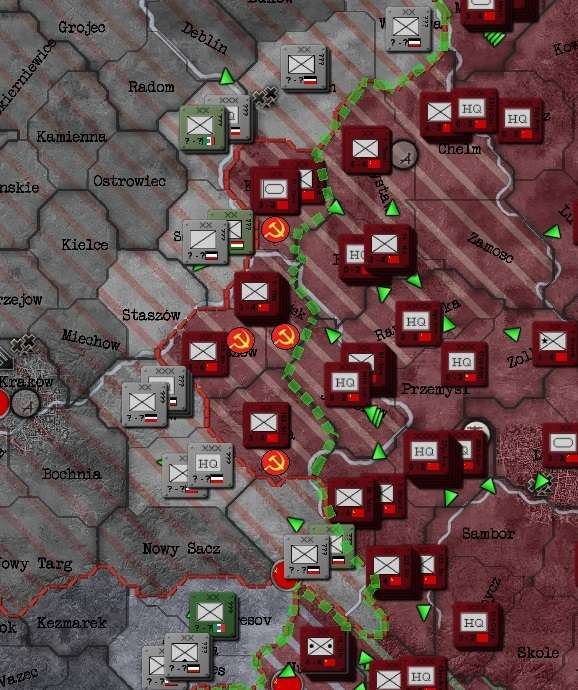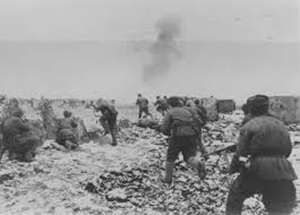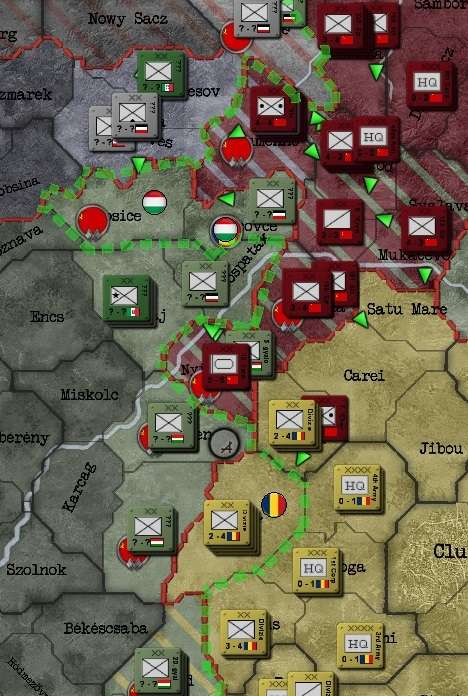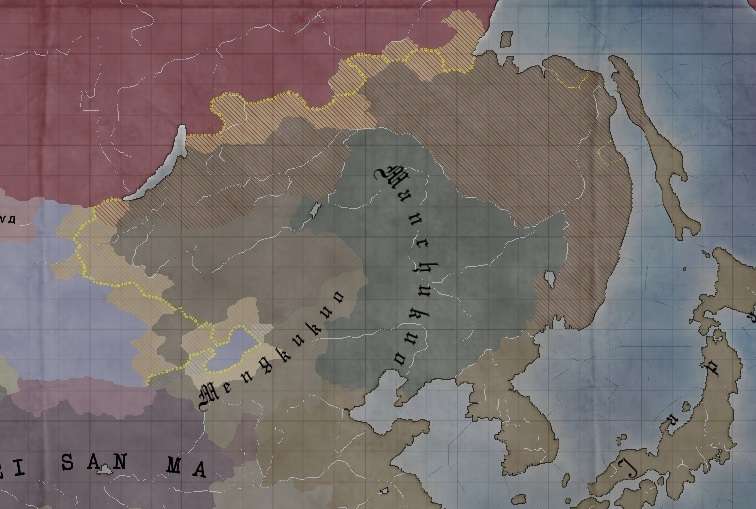Chapter 95: Testing Times (15 to 30 September 1940) – Part 2
As promised, here is the second part of Chapter 95. I’ve also brought forward a bit of narrative as there was less battle-related text in this part.
Prologue – Switzerland
Later on the same night of the Tattaglia’s hit on Vatan ‘Vito’ Ceylan, Carlo Rizzi is talking to the guys that did the hit.
“Are you sure you got him?” he asks.
“Well boss, we put at least five shots into him, he
must be dead. He looked dead to me.” The other wise guy nods. “But his driver was coming out with a gun, so we didn’t hang around to see.” Fortunately, they didn’t realise it was the bumbling Fredo – they thought it would have been a trained body guard, so had made their getaway.
“Well, you guys had better be right, or we’re in a lot of trouble.” If Sonny has anything to do about it, they will be in trouble either way!
---xxx---
Back at the Embassy, Sonny is gathered with First Counsellor Tom Heygan and Polat Cumali (Head of Embassy Security).
Polat Cumali, head of security at the Turkish Embassy. And old-school S.I.T.H. operative.
The phone rings again. This time it is Fredo, calling from the hospital. “He’s still alive, but they’re not sure if he’s gonna pull through. He’s in a coma right now.”
“Those bastards. I’m gonna kill that little pr!ck Rizzi, then the rest of the Tattaglia
pezzonovante," Sonny is not a happy man. “Polat, get Cennet over there to keep an eye on the Old Man. She can pretend she’s a nurse or somethin'. If these guys find out he’s still alive, they’ll send someone to finish the job. Even with Swiss security around.”
“Sonny,” says Tom. “Let’s just think calmly now. Cable Ankara for instructions. And don’t make any hasty moves. The Ambassador is still our boss. He may pull through.”
“Yeah Sonny,” chimes in Cumali. “It's a lot of bad blood, on both sides. The Ambassador, Sollozzo, Luca Brasi, Altobello, Vinny, Lucchesi ... they even tried to whack the Pope and President Atatürk. And they had plans to hit the Milli Şef!”
“It's gone too far - I think it's become too
personal,” finishes Tom.
“Well, maybe, we’ll see.” Sonny pauses. “Tom, you’re First Counsellor, I’m just acting head of the European Espionage Section. Now what do we do if the old man dies, God forbid.”
“Nobody wants bloodshed anymore. If your father dies, we should make the deal, Sonny.”
“That's easy for you to say, Tom, he's not your father!”
“I'm as much a son to him as you or Fredo.”
All they can do for now is wait. For instructions from Ankara and to see whether the Ambassador survives the assassination attempt.
---xxx---
Europe
The strategic map below shows current positions, with the dotted lines representing the situation as it stood at midnight on 14 September. The arrows (red for the Axis, blue for the Allies and Comintern) give an idea of both ground gained and the balance of fighting on both fronts. Clearly, things are grimmer again in the West, more balanced but slightly in the Comintern’s favour in the East. Let us look at each in more detail, as at midnight on 30 September 1940.
Edit: missed this map when I first uploaded.
Eastern Front
In the north, the Soviets have managed to hang onto
Memel. To the south of that, the Germans have retaken much of the land they lost to the Soviets in the previous period, but the Red Army does seem to be counter-attacking. And they managed to hold
Gumbinnen and take the East Prussian province of
Lötzen to the south of that. Honours roughly even after some heavy fighting.
In the Polish sector, the Soviets have expanded their Bug River bridgehead to the north and south. While the Germans were able to form a new front to protect
Lublin and to its south, the Soviets man the front in strength and could potentially exert more pressure as autumn turns gradually to winter.
On the Hungarian-Romanian-Slovakian sector, the Red Army once again occupies
Humenne, in reasonable strength this time, but the Germans are counter-attacking it from the west. Axis forces have pushed back the Soviet salient in eastern Hungary that had threated
Kosice two weeks ago. However, the Romanians have retaken and stabilised their border further south, where for a while Hungary had occupied two of their provinces (one –
Oradea - from the previous period, another –
Arad - lost and retaken in the last week). The Romanians would be doing better than this had a large part of their army not been sent east by the STAVKA – where they are lost in transit, not contributing to anything yet.
A quick look at the air war for the last seven days on the Eastern Front is a good indicator of the intensity of major combat. Interestingly, of the four major areas of recent combat, the Polish Sector has not seen any recent air action. Perhaps both sides there have been consolidating over the last week.
Western Front
The overall situation on the Western Front took a turn for the worse in the last part of September. Having been holding reasonably solidly for the previous few weeks, the Germans have generated a couple of effective offensives, with one aimed like a dagger at
Paris, where they are now on its outskirts. The French are now receiving lend lease support from not only the UK, but also our Soviet comrades – who are giving them (18.4 IC) more than they are giving us (13.0 IC). Though the French really do need it. Still no sign of any BEF at all.
---xxx---
We will concentrate first on the
Paris sector, as it is crucial to the wider war effort and our prospects in the East and in the Med. German medium panzer divisions have taken four provinces to the north of
Paris in the last two weeks, including
Beauvais, which now directly threatens
Paris itself – which does not yet look very heavily defended. That French tank division is actually headed south-west to
Versailles! To the south-east of
Paris, a German infantry division serving (somewhat mystifyingly) under Slovakian command has taken
Joigny.
The French have also provided some battle reports for actions in progress as at midnight.
- Of concern, the battle for Neufchatel en Bray is already over, with the 51st Inf Div retreating (although in good order) to Rouen, where there is a river line defence, though no solid defence in place yet.
- The Germans are also attacking Meaux, to the north-east of Paris, where the 10th Pz Div has almost overcome the defending French 21st Inf Div. That will give the Germans a second flank on Paris, although also over a river.
- But to the east of Paris, in Jouarre, the French are mounting a strong counter-attack against the 12th Pz Div, though its chances look about 50/50. And it risks diverting forces from the defence of Paris.
- And then we travel south to Sens, where the German 2nd Pz Div is attacking the French 24th Inf Div – and well on its way to winning that battle.
---xxx---
The Maginot Sector is looking a little better, though that may be because the Germans are reserving their main effort for
Paris.
Xertigny was lost earlier in the month, but the rest of this part of the line holds.
The French appear to be putting in two counter-attacks here, but have either not made contact yet or the opposition is retreating before combat, which seems unlikely. 41st Inf Div is trying to retake the key centre of
Troyes, while the 1st Inf Div attacks
Xertigny, which both sides seem intent to hold.
---xxx---
The report on the air war in France over the last week tells its own tale. The bulk of the French Air Force is stationed in
Paris in three Groups totalling seven wings of INT and TAC. A few of them are heavily damaged from recent air battles and attacks on
Jouarre, where the French have been counter-attacking. To the south-east (off-map), another group of mixed aircraft types is based in
Besancon and looks to have been contesting the skies over the
Joigny salient.
This is all looking pretty worrying, as the French head into a dangerous October.
---xxx---
Naval Report
All the recorded naval losses in the period
15-30 September were incurred by Italy! The
Regia Marina has had a hard time of it, at the hands of the British Royal Navy. They have lost a battleship, two light cruisers, two troop transports and three submarine flotillas!
The Giovanni dalle Bande Nere was an Italian light cruiser of the Giussano class. Her keel was laid down in 1928; she was launched on 27 April 1930, and her construction was completed in 1931. She displaced 6,571 tons at standard load and had a main armament of eight 152 mm (6 in) guns in four twin mountings. Sunk by the HMS Suffolk (CA) in September 1940.
Bartolomeo Colleoni was another Italian Giussano class light cruiser. Laid down in June 1928; launched in December 1930 and commissioned on 10 February 1932. Same specifications as its sister ship, the Bande Nere, above. This picture was taken of the ship as it was sinking, downed at the hands of the HMS Queen Elizabeth (BB) in September 1940.
Vittorio Veneto was the second member of the Littorio class battleships in the Italian Regia Marina (Royal Navy) that served during Great War II. The ship's keel was laid down in October 1934, launched in July 1937, and readied for service with the Italian fleet by August 1940. She was armed with a main battery of nine 381-millimeter (15.0 in) guns in three triple turrets, with a standard displacement of 41,376 tons. Seen here (foreground) firing in the engagement at which it was later sunk, in September 1940, with the HMS Cumberland (CA) claiming the final honours. This huge and modern battleship is by far the most significant Axis naval loss of the war so far. It did not even last two months after its launch!
---xxx---
North Africa
The Italians make slow progress, while the French forces remaining in
Tunis (three HQs and a light mobile division of one CAV and one MOT brigade) remain
in situ.
The Iraqis have overrun the Italians in eastern Libya and have a militia division surrounded in
Bengasi.
---xxx---
Far East
One week on from the last report (in Part 1) from the Far East, neither of the Japanese pincers threatening to cut off the bulk of the Soviets Far Eastern armies have closed yet (via
Fevral’sk and
Solnechny), but the Japanese are putting the squeeze on the Soviet 24th Army still in full retreat from its failed defence of
Vladivostok. In one small victory, part of the salient from Manchuria has been pushed back by Soviet troops at
Solov’evsk.
And Japan and Manchukuo (with a number of Japanese units under command in Manchukuo colours) continue to spread through Mongolia and have reached
Lake Bailkal, dividing Comintern forces to the north and south of it.
A bleak picture to be sure, but not as immediately dangerous or important as that in France.
---xxx---
Epilogue – Ankara, a Coffee Shop
Our two Foreign Ministry officials are back, sharing their habitual coffee and baklava, near the Ministry in Ankara. The first mentions a snippet of conversation he had recorded of President Inönü, talking to his Cabinet colleagues, after sentencing the traitors, given as he set off to the front to take command of the Turkish 1st Army in the
Great Liberation War.
He reads from a speech of Inönü’s to his colleagues at the time. “’Now, for the front; the enterprise which shall be to you, as me, glorious. We doubt not of a fair and lucky war, since God so graciously has brought to light this dangerous treason lurking in our way, to hinder our beginnings. We doubt not now but every rub is smoothed on our way. Then forth, dear countrymen: let us deliver our puissance into the hand of God, putting it straight in expedition. Cheerily to the north; the signs of war advance: No President of Turkey, if not conqueror of Germany!’”
“So inspired, no doubt our armed forces were bound to stride manfully along the Path to Glory,” says the first official. Loudly, for the benefit of any of Kaya's listeners. “And I believe this struck some fear and consternation in our sausage-eating enemy!”
“And so it did, my good friend, so it did,” says the second official. “We have a report from our Soviet brethren of a meeting of the enemy leadership some time after the declaration of war on them by us and the Soviet Union. Our President had sent a demand he knew they would reject, but was determined to counter the insult offered by the bratwurst-purveying Deputy Führer Hess.”
“Oh really? Do tell!”
---xxx---
In late July, Adolf Hitler was meeting with Deputy Führer Rudolf Hess and
Reichsmarschall des Grossdeutschen Reiches (Reich Marshal of the Greater German Reich) Hermann Goering in the Albert Speer-designed New Reich Chancellery (
Reichskanzlei) in Berlin.
The New Reich Chancellery (Reichskanzlei) on the corner of Voßstraße and Wilhelmstraße in Berlin.
They gather in the New Reich Chancellery's Reich government chamber, with other advisers and counsellors.
Hermann Wilhelm Göring (b.12 January 1893). A veteran Great War I fighter pilot ace, he was a recipient of the Pour le Mérite. He was the last commander of Jagdgeschwader 1, the fighter wing once led by Manfred von Richthofen. An early member of the Nazi Party, Göring was among those wounded in Adolf Hitler's failed Beer Hall Putsch in 1923. After holding very senior roles in the Nazi-led Government from 1933, on 19 July 1940 Hitler appointed him as Reich Marshal of the Greater German Reich. He is viewed at this time as the third most senior official in the Government, after Hitler and Hess.
---xxx---
Hitler speaks. “Thus come the Soviets and Turks with full power upon us and more than carefully we must answer to our defences. Therefore you, Hess, with all swift dispatch, ensure our means of war are in good repair, with men of courage and with means to defend in the East. For Turkey and the Soviets make their approaches as fierce as waters to the sucking of a gulf. It fits us then to be as provident as fear may teach us out of late examples left by the fatal and neglected Turks upon the field of battle.”
“My most redoubted Führer,” replies Hess. “It is most appropriate we arm us against the foe. For peace itself should not so dull the Reich. We will finish the French then teach the Communists a stern lesson. The Reich’s defences, musters and preparations will be maintained, assembled and collected. I say we should all go forth to view the sick and feeble Turkey: and let us do it with no show of fear; no, with no more than if we heard that Turkey were busied with a folk-dance. For, my good Führer, it is so idly led, by a vain, giddy, shallow, humorous ‘President’.”
“O peace, Hess!” interjects Göring. “You are too much mistaken in this
Milli Şef. What report did your ambassadors provide when you moved to insult Inönü? With what great state he heard their embassy, how well supplied with noble counsellors, how modest in exception, and withal how terrible in constant resolution. You shall find his vanities and isolationism are things of the past.”
“Well, it’s not so, my
Reichsmarschall des Grossdeutschen Reiches. But though we think it so, it does not matter: in cases of defence it is best to weigh the enemy more mighty than he seems: so the proportions of defence are filled.”
“I think Inönü strong,” states Hitler. “Look
you strongly arm to meet him. And Stalin is bred out of that bloody strain that haunted us in during the Great War and carried out their Boshevik revolution. He was witness to our much memorable shame when Germany was betrayed and surrendered. The Allies mangled the work of nature and defaced the patterns set by Fate and by German fathers, these twenty years past.”
---xxx---
They are interrupted by a messenger, one of Hitler’s adjutants. He clicks his heels and salutes. “Mein Führer, we have a communique from the Turks!”
“We'll see it. Bring it to me.”
While the message is brought over, Hess fills the pause with an acerbic comment. “Coward dogs bark loudest when they
seem to threaten. My good Führer, take up the Turks short and let them know of what a Reich you are the head: self-love, my Führer, is not so vile a sin as self-neglecting.” There is not much chance
Hitler will disagree with such advice!
Hitler directs the messenger to give Inönü's communique to Hess, who he orders to read it aloud to the others.
Hess begins reading. “'In the name of God Almighty' Inönü says here, 'divest yourself and lay apart the borrowed glories that by gift of heaven, by law of nature and of nations, of that leadership of Germany that you have usurped and all wide-stretched honours that pertain by custom and the ordinance of times to the rule of Germany. That you may know this is no sinister nor awkward claim, picked from the worm-holes of long-vanished days, nor from the dust of old oblivion raked, I bid you then resign your leadership and Reich, unjustly held from the People, who through the Comintern are the native and true leaders of Germany.’”
“Or else what follows?” asks Hitler.
Hess skips to that part of the note that refers to the consequences of rejection. “’If you reject this demand, bloody constraint will follow. For if you hide even the pretension of Nazi dictatorship in your hearts, the Comintern will rake for it. Therefore, in fierce tempest we are coming, in thunder and in earthquake, like a Jove that, if you fail to comply, will compel. I bid you, deliver up the leadership to the Proletariat and take mercy on the poor souls for whom this hungry war opens his vast jaws on your head, turning the widows' tears, the orphans' cries, the dead men's blood, the pining maiden’s groans, for husbands, fathers and betrothed lovers, that shall be swallowed in this controversy. This is my claim, my threatening and my message.’”
“Is there more, Hess?” demands Hitler, now simmering with barely restrained rage.
“There is, my Führer, but I care not to read it!” Hess is clearly discomforted.
“Here, give it to me Hess,” says Göring, as he impatiently snatches the note and begins reading. “’To the Deputy Führer I expressly bring greeting too. To him, scorn and defiance; slight regard, and contempt I give. Thus I say if your Führer does not, in grant of all demands at large, sweeten the bitter mock you sent me, I will call you to so hot an answer of it, that the people in the streets and beer halls of Germany shall chide your trespass and return your mock to second my words. Dispatch your response with all speed, or I will come there myself to question your delay; for I am on my way to your land already.’”
“I did mock him with a consignment of bratwurst in match for the esteem in which we hold him,” confesses Hess.
“And I find no fault in you for doing so, Hess.” Hitler is now clearly infuriated with this missive from the
‘Milli Şef’. “This Inönü is clearly but a barking lap-dog to his master, Stalin, who is more worthy of our respect than this Turkish upstart. A Second Great War it will be then, but this time it will be the
Reich that triumphs. It is our Destiny!”
“Heil Hitler!” call Hess and Göring as they salute in unison, to indicate their fulsome agreement. They and the rest of the Nazi regime apparatus head off to redouble the war effort that had originally been geared only to the invasion of France.
---xxx---
Coming Up: a hard year drags itself into October. Will the
Battle of Senta end in victory – or will those Hungarian divisions reappear? Will France survive until the end of the month? Can Germany impose their Führer’s ‘Destiny’ on their old enemy? If they do, what will that mean for the Comintern in the East? And will the Soviets lose the bulk of their Far Eastern forces? If so, they will take a lot of replacing and the second front there will absorb men and resources they would rather apply to the Germans. The attacks on the north of the
Yeniçeri Line are getting more substantial – can the Axis get sufficient forces together to actually punch a hole in it? It seems the time for any grand offensive to seize
Budapest is some time off – with much of the Romanian Army off on other duties and the Soviets not sending the forces needed to support such an operation. For now, until the winter at least, Turkey is busy just helping the Romanians to hold their line. Will the Powers-that-Be like the new name for the tabloid rag they plan to publish on Republic Day? And will Vito Ceylan survive, will Ankara let Sonny loose and will Sonny be able to hold his temper? All this and more in forthcoming episodes.


